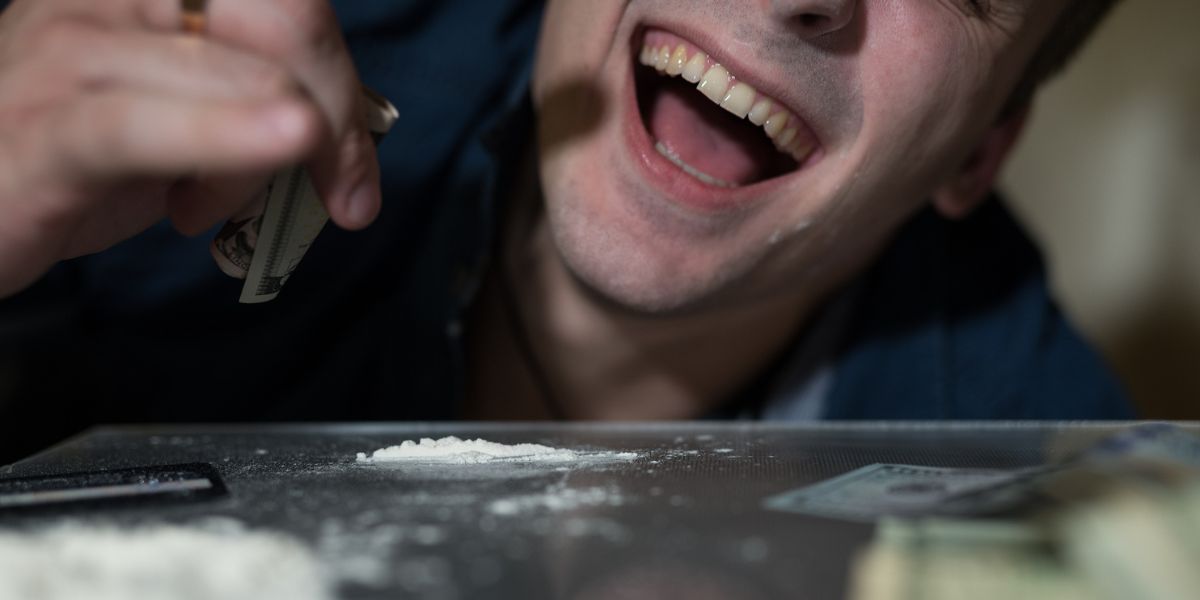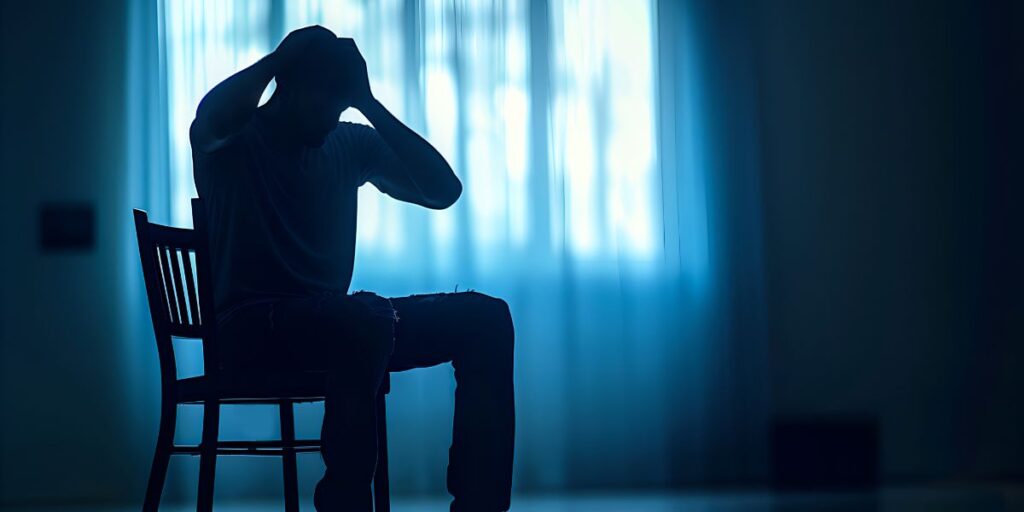Cocaine Psychosis and Psychiatric Symptoms


Many people drawn to cocaine seek its euphoric effects, increased energy, and heightened alertness. The compounds in cocaine can cause both euphoria and psychosis, putting the user and others at risk. Cocaine psychosis is a dangerous contrast to the desired feelings of happiness and pleasure.
Research has identified specific risk factors that increase the odds of experiencing cocaine-induced psychosis. Nevertheless, all people who consume cocaine face a risk just by exposing their bodies to the substance. Over half of those who use cocaine report encountering symptoms of psychosis at least once. These episodes can last a few hours or even weeks or months and may cause symptoms of other mental health disorders.
Cocaine-induced psychosis is scary for everyone involved. It often shows that this mental break is a serious problem that needs immediate treatment and special care.
What Is Cocaine Psychosis?
Cocaine-induced psychosis marks a departure from reality, manifesting as paranoia, delusions, hallucinations, and, occasionally, violent and dangerous behaviors among users. This condition mainly impacts long-term cocaine users. However, it can also occur in first-time or occasional users.
Substance use, mental health problems, or chemical imbalances can cause psychosis.
High dopamine levels can cause psychosis by reducing impulse control and increasing feelings of aggression and mania. Cocaine misuse leads to an excessive release of dopamine, potentially sparking psychotic symptoms or an outright psychotic episode. Moreover, the adverse effects of cocaine may ignite existing mental health problems, further fueling psychosis.
Episodes of cocaine-induced psychosis can persist for days beyond the drug’s presence in the body. Medical professionals assert that repeated episodes heighten the likelihood of recurrence and prolongation, with some people experiencing symptoms for extended periods.

Cocaine Psychosis Symptoms
The intensity and variety of symptoms related to cocaine psychosis differ among people. People using cocaine may experience sensations closely resembling those associated with schizophrenia or bipolar disorder, a phenomenon known as cocaine psychosis.
Healthcare experts categorize the symptoms of cocaine-induced psychosis into three primary groups: paranoia, hallucinations, and delusions.
Paranoia
Cocaine puts people in a state of heightened vigilance. When someone has psychosis, they may believe that others are watching or following them. Often, they think that enemies or the police are monitoring them.
Hallucinations
People who have hallucinations may perceive things through their senses that do not actually exist. They may see, hear, taste, smell, or feel things that are not real. Despite this, they are convinced that these experiences are genuine.
Delusions
Delusions are different from hallucinations because delusions consist of ideas and false beliefs rather than physical sensations. People with delusions may believe things that are not true about themselves or others, which can cause weird behaviors.
Furthermore, cocaine-induced psychosis may trigger different behaviors. During these psychotic episodes, people may feel scared, confused, or defensive because they don’t realize what’s happening to them. This condition may make people aggressive or violent, endangering themselves and others nearby.
Additional behaviors and common symptoms of cocaine-induced psychosis include:
- Chaotic or difficult-to-understand thoughts
- Unclear speech
- Sudden emotional reactions
- Repeated or obsessive physical actions
- Impulsive behavior
- Hostile actions
- Uninhibited sexual conduct
- Aggressive acts
- Self-injurious behavior
- Thoughts of suicide
- Fantasies or thoughts of harming
Differing from physical side effects, the symptoms of cocaine psychosis don’t directly lead to injury or death. However, the behaviors they prompt in people can be dangerous. If someone near you is acting crazy from cocaine, stay calm and make sure you’re safe first. Then, try to help and comfort them.

Mental Effects of Cocaine
People suffering from mental health conditions frequently turn to illegal drugs as a means to self-medicate their symptoms. Similarly, extended drug abuse can lead to the development of mental health issues.
The variation in dopamine levels induced by cocaine use may activate or exacerbate mental health disorder symptoms. Having a mental illness makes it more likely for someone to develop a cocaine addiction or psychosis.
People who have a hard time with cocaine often deal with other mental health issues, like:
- Undergoing episodes indicative of schizophrenia
- Feeling super happy or super sad (bipolar disorder)
- Attention Deficit Hyperactivity Disorder (ADHD) is characterized by issues maintaining focus
- Feeling down (depression)
- Feeling scared or worried (anxiety and panic disorders)
- Problems with eating too much or too little (eating disorders)
- Drinking too much alcohol (alcohol use disorder)
- Trouble with using other things that can hurt them (Various Other Substance Use Disorders)
Cocaine Addiction Treatment at White Oak Recovery Center
If you or someone you value is struggling with cocaine addiction, White Oak Recovery Center can help. We offer a residential treatment program that is evidence-based and designed to support you. Our goal is to help you live a fulfilling life in recovery.
Your overall well-being and long-term recovery are our top priorities as soon as you step foot into our facility. We start by focusing on getting you off substances as safely as possible, offering on-site medical detox with compassionate medical care and support. Our licensed and experienced medical staff diagnoses your psychiatric conditions and the underlying cause for addiction to find the appropriate psychosis treatment.
Contact us today to speak with a caring treatment specialist. Our team of experts is here to help you start your recovery journey to a healthier, happier life.

Am I covered for addiction treatment?
Your insurance may cover treatment. Call now for an entirely free and confidential assessment. Recovery starts with a phone call.

- Morton, Alexander W., “Cocaine and Psychiatric Symptoms.” Primary Care Companion J Clinic Psychiatry, Aug. 1999.
- Tang, Yi-lang, et al., “Transient Cocaine Associated Behavioral Symptoms Rated with a New Instrument, the Scale for Assessment of Positive Symptoms for Cocaine-Induced Psychosis (SAPS-CIP).” Am J Addict, Oct. 2009.
- Brady, K. T., et al., “Cocaine-Induced Psychosis.” J Clin Psychiatry, Dec. 1991.
- Roncero, C., et al., “Risk Factors for Cocaine-Induced Psychosis in Cocaine-Dependent Patients.” Eur. Psychiatry, Mar. 2013.
Medical Disclaimer:







